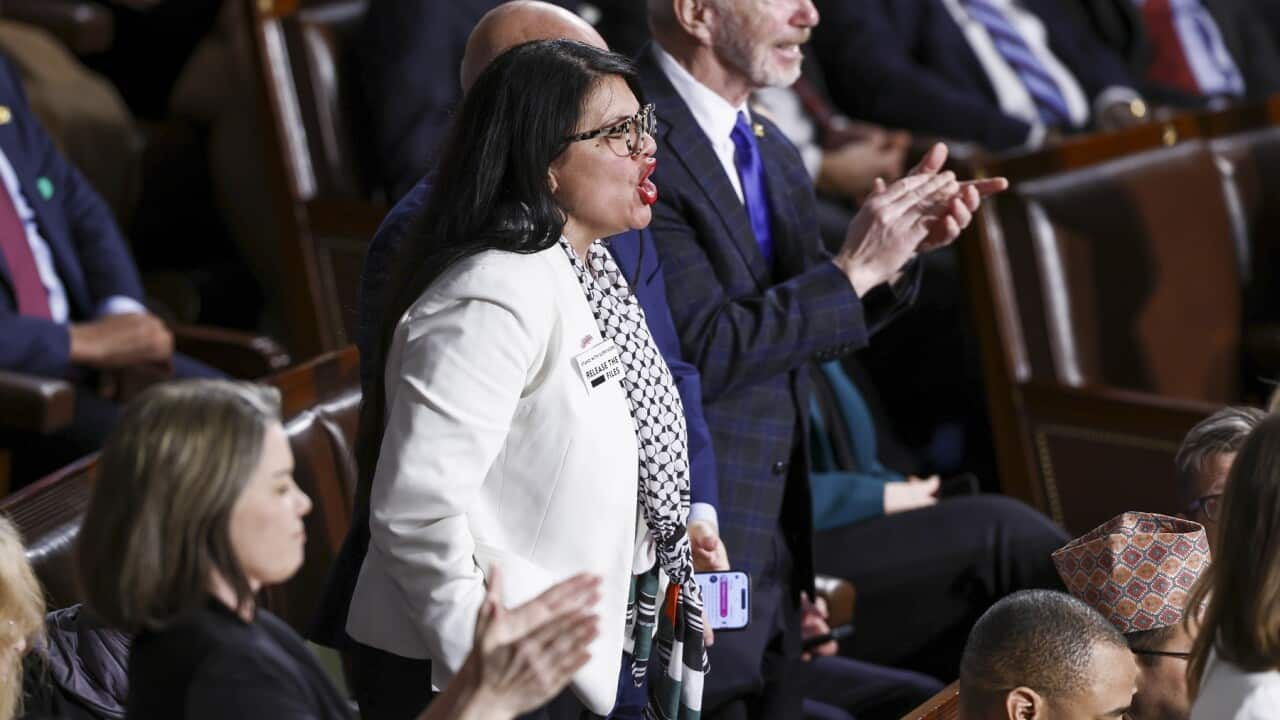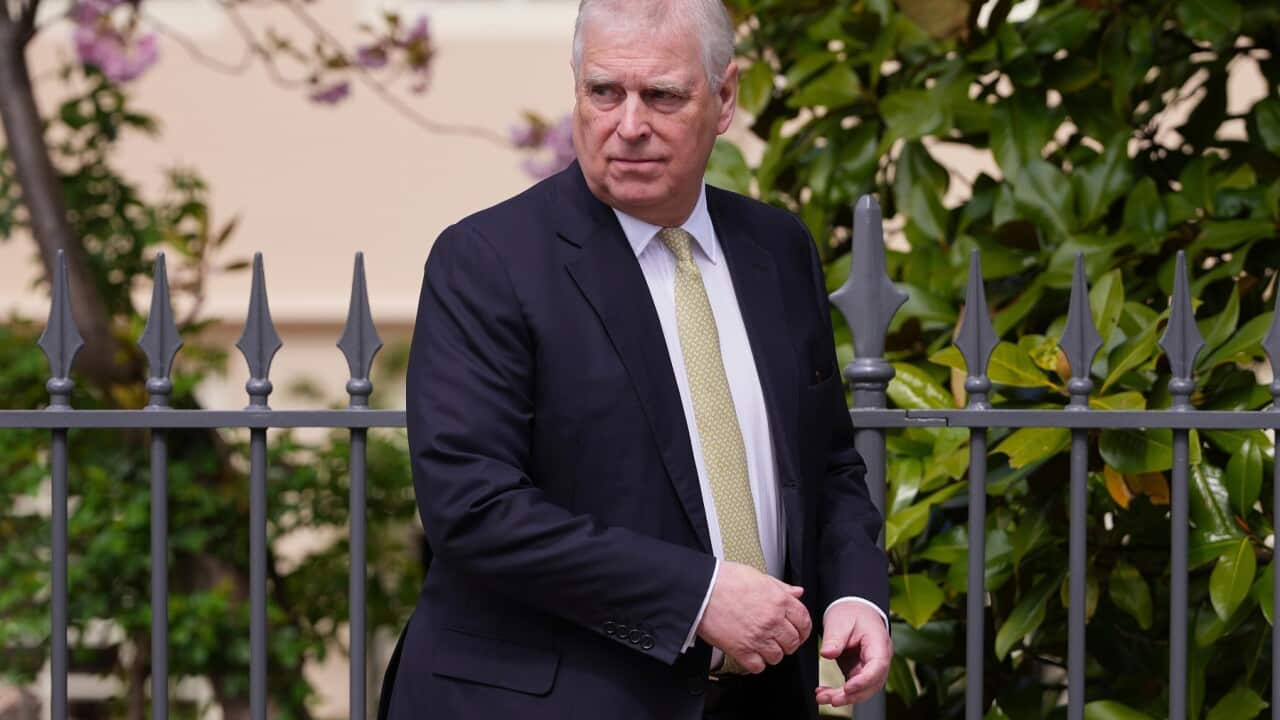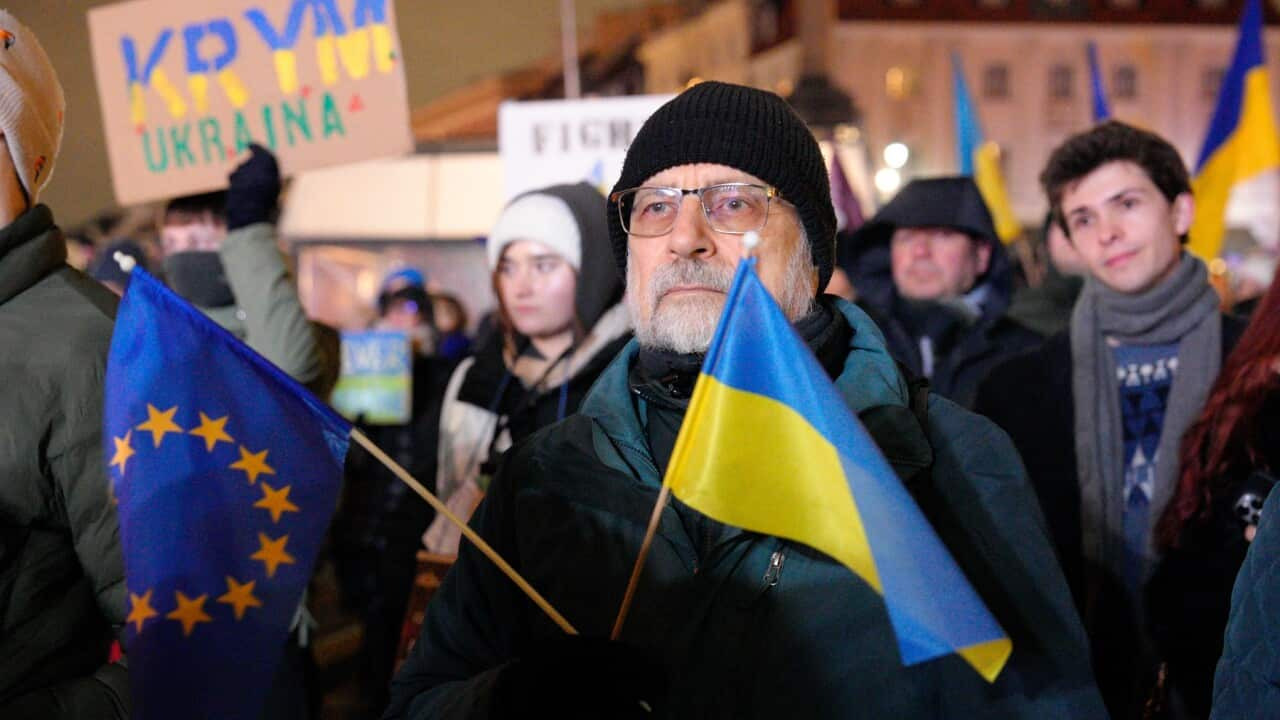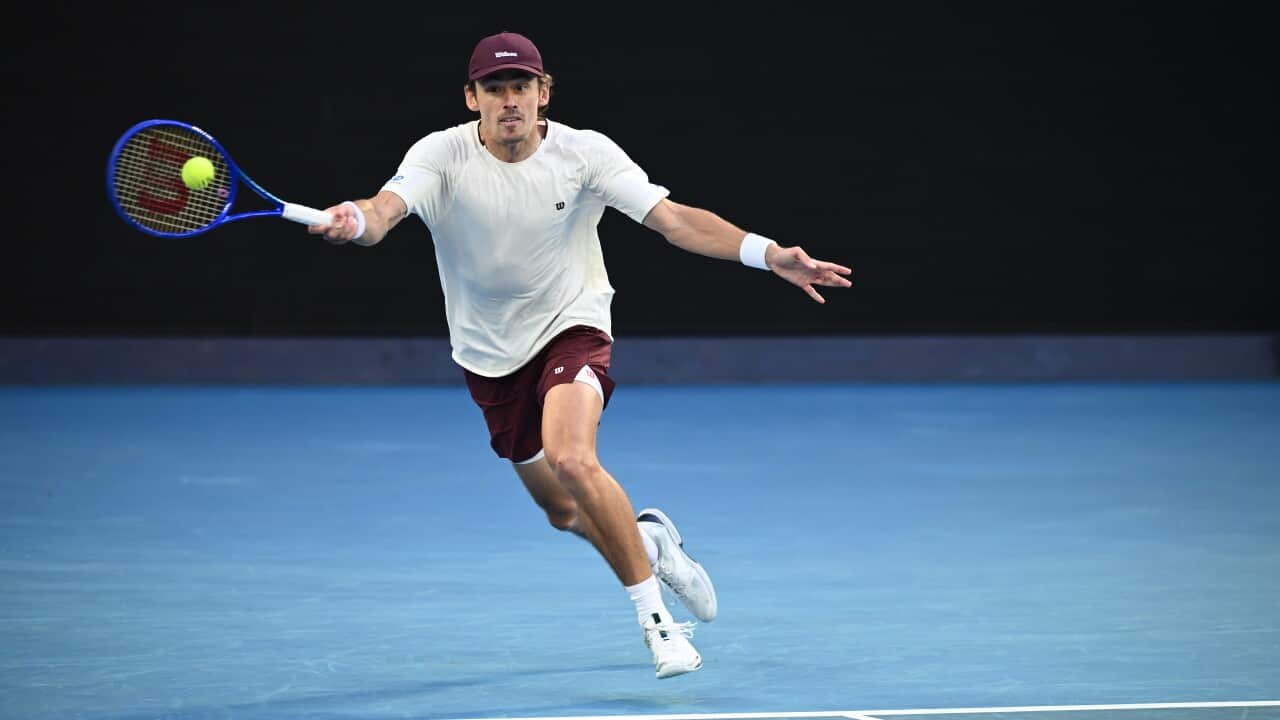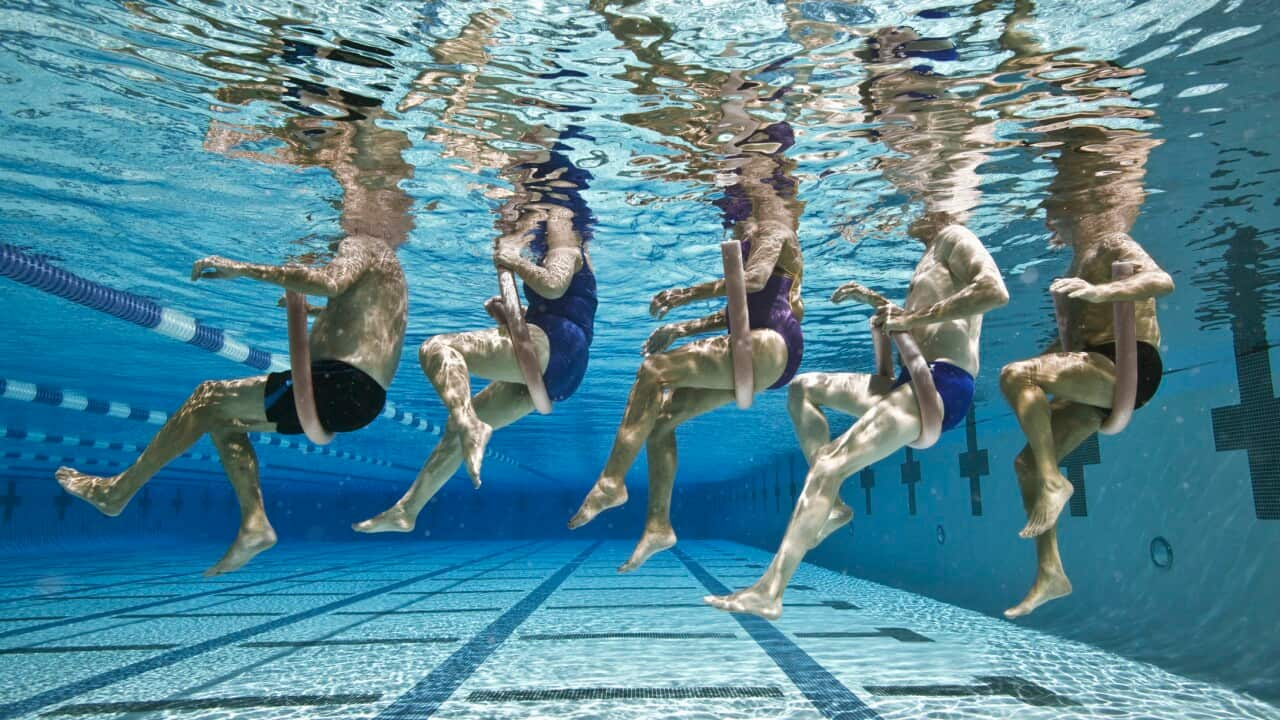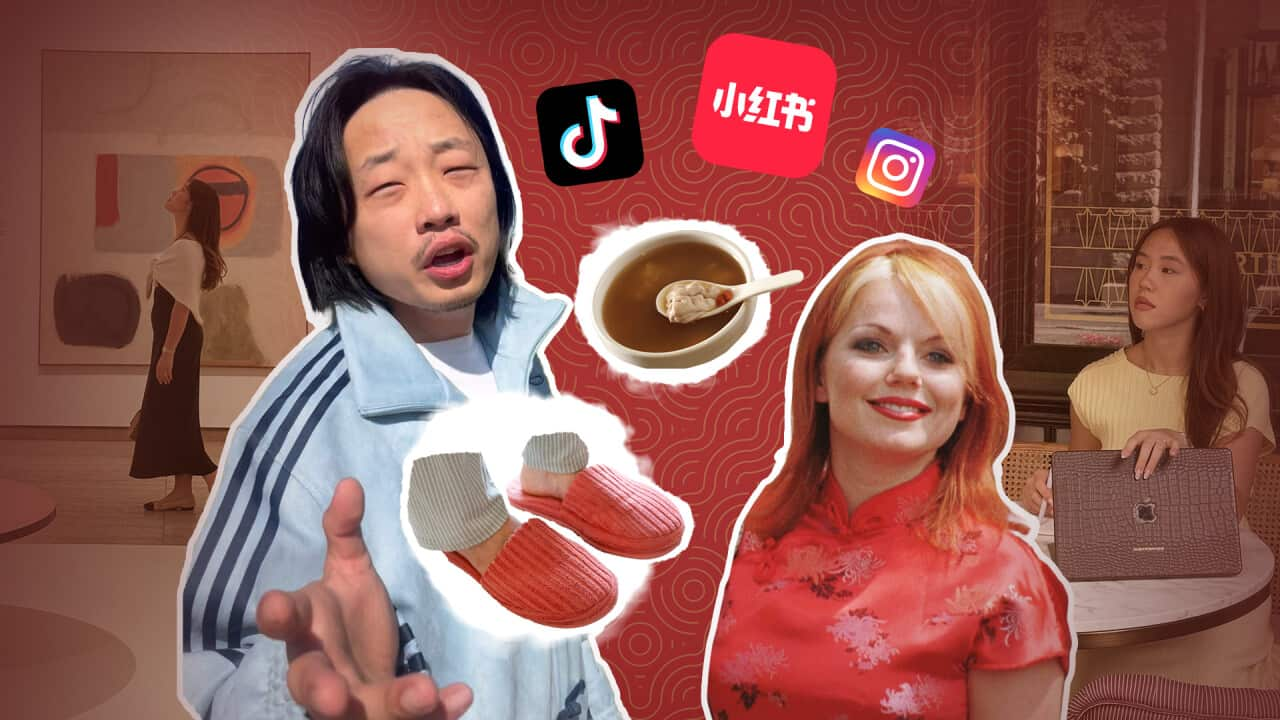Listen to Australian and world news, and follow trending topics with SBS News Podcasts.
TRANSCRIPT
Pope Leo has officially assumed the role as the 267th pontiff of the Roman Catholic Church, taking part in a formal ceremony to mark the beginning of his papacy.
Some 200,000 people gathered for the two-hour papal mass in St Peter's Square.
It began with prayers - Pope Leo choosing to sing at certain moments.
He then descended into St Peter’s tomb under the basilica to receive the pontifical emblems - a white band of wool worn around the neck called the pallium, and the Fisherman's ring.
Each pope receives a new version of the gold ring bearing their name. The ring was once used to seal papal documents, but is now used only ceremonially.
In his 12-minute homily, he condemned economic systems that he says marginalise the poor.
(Italian then translated into English): "In our time, we still see too much discord. Too many wounds caused by hatred, violence, prejudice, the fear of difference, and an economic paradigm that exploits the Earth’s resources and marginalises the poorest. For our part, we want to promote unity, communion and fraternity."
Pope Leo takes over a Church still battling the fallout of the clerical child abuse scandal, and trying to adapt to the modern world.
He says he is aware of the challenges he takes on with this leadership role - and says he sees his task as bringing about unity.
(Italian then translated into English): "I was chosen, without any merit of my own, and now, with fear and trembling, I come to you as a brother, who desires to be the servant of your faith and your joy, (audience applauding) walking with you on the path of God’s love, for he wants us all to be united in one family. Love and unity: these are the two dimensions of the mission entrusted to Peter by Jesus."
In St Peter's Square, Lily Luna from Chicago says he was heartened by the pope's words - and also be seeing him tour the piazza in the popemobile.
"Actually I live not far from where the Pope's brother lives. I grew up in Joliet and Lenox area, so I feel like it's a full circle moment because just to think that he was basically at my church last summer giving mass and now he's here giving mass for the whole world. So I just feel it's a very special moment in my life and I wanted to take part of it because its now a historical part of the spiritual."
Carmel Massa travelled from Malta to take part in the historical moment.
"I think it's a very good choice. We said to our cardinal who comes from our country, from Malta, we told him 'I think you made a very good choice', because he seems to be an international collection of experiences."
From Kenya, Esther Onyango says she feels hopeful.
"Everybody has his own way of leadership so I hope for a start it's good to go. So for me it's okay because everybody has their way of leadership and everybody has their way of doing their things, and the fact that he's a people's person, that's enough for me."
World leaders and royalty were also among those present.
The Pope's first private meeting after the ceremony in St Peter's Square will be with Ukrainian leader, Volodymyr Zelenskyy and his wife.
Earlier, in his homily, Pope Leo said he wanted the Church to be encouraging the pathway to peace - and also his hope for negotiations to bring a "just and lasting peace" in Ukraine.
(Italian then translated into English): "In the joy of faith and communion, we cannot forget our brothers and sisters who suffer from the wars. In Gaza, children, families, elderly survivors are starving... In Myanmar, new hostilities have claimed innocent young lives. The martyred Ukraine finally awaits negotiations for a just and lasting peace."
The late Pope Francis met Mr Zelenskyy several times and repeatedly called for peace in Ukraine, even appointing a special envoy who visited Kyiv and Moscow.
But many Ukrainians have been criticised him for calling for Ukraine to raise the white flag; and also failing to clearly blame Russia for its invasion.
Ukraine and Russia have held their first direct talks in more than three years - but did not agree a truce.
Vatican expert and author Philip Pullella says Pope Leo's inauguration can be contrasted to those from the past - as this time, the main members of the clergy pledged their obedience to him.
"What happened today is the ceremonial inaugural Mass of his pontificate, and that includes the Mass, included groups of people representing various parts of the Church - cardinals, priests, nuns and even laity pledging their obedience to him. That's slightly different than some of the inaugural masses of the past, with that slight element there, which is a very important one, because basically, you have all sectors of the Catholic community pledging their obedience to him. So it's a significant change."
Mr Pullella says he expects Leo to continue the work of Pope Francis, but he has also signalled some differences.
"Leo, from the things that he's already said, has indicated that he will follow in the footsteps of his predecessor Francis to a certain extent. We have received signals from him that he will place a premium on human rights, place a premium on respect for migrants, social issues like that. On the other hand, he has also sent signals that he will go back at least somewhat to some of the traditional aspects of the papacy, as far as, for example, vestments ((clothing)) are concerned. He's gone back to wearing the type of vestments that Pope Benedict wore and then were shunned by Pope Francis. So there's a bit of a mix."

